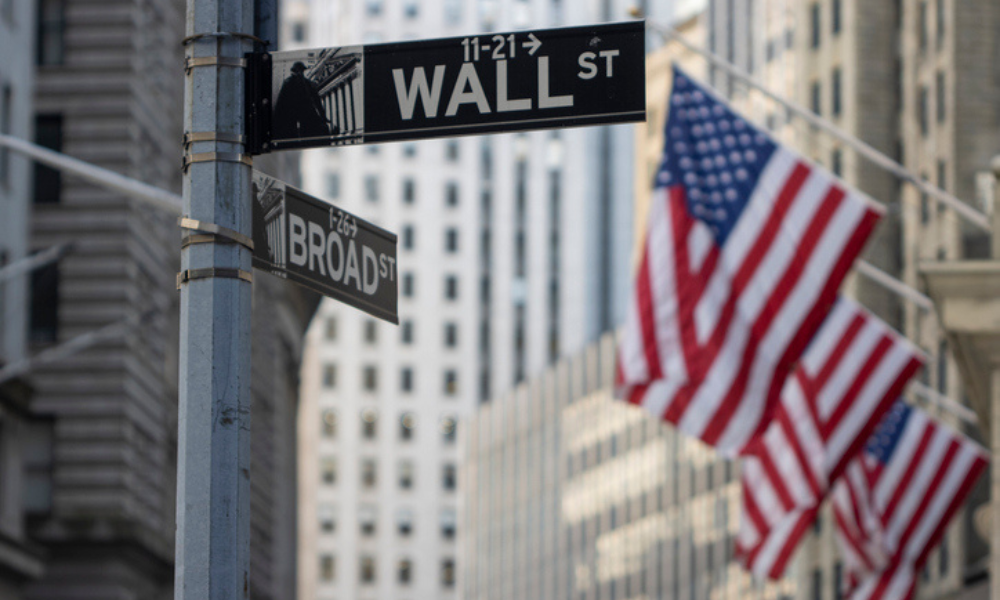

Some of Wall Street’s biggest banks may be underestimating a risk metric that shows how they’ll fare in a world that’s rapidly being transformed by higher temperatures, extreme weather shocks and soon-to-be obsolete business areas.
While banks have started measuring climate risks, they aren’t adjusting their businesses to address the physical disruptions ahead as clients and the wider economy get hit, according to a study by Climate X, a risk data provider whose clients include Legal and General Group Plc, Federated Hermes Inc. and Jones Lang LaSalle Inc. The report focuses specifically on the industry’s adaptation-finance policies and practices.
History shows that the implications of ignoring systemic risks can be profound, says Kamil Kluza, Climate X’s chief product officer.
“The reason we fell into the recession of 2008” is because “we didn’t capture liquidity risk enough and the associated capital challenges that we had,” he said in an interview. Back then, “we used to pick up credit risk, operational, market risk, but we never looked at particular liquidity risk.”
There’s currently a similar blind spot around climate risk, Kluza said.
Banks with the lowest scores when it comes to financing investments to adapt to global warming include Goldman Sachs Group Inc., Morgan Stanley and JPMorgan Chase & Co., according to Climate X, which worked together with an organization called Climate Proof to compile the research. The top-scoring bank — with 12 out of 17 possible points — was Standard Chartered Plc, followed by Banco Santander SA, with 11 points.
Alex Kennedy, head of Standard Chartered’s sustainable-finance solutions and adaptation-finance unit, said in an email that the bank is working on ways to “scale finance and investment for adaptation.”
It’s an area that “needs to rapidly increase to address a critical shortfall amid rising demand,” he said.
Kennedy also highlighted the bank’s “footprint across emerging markets” and noted that “around 90% of our markets are coastal.” Against that backdrop, Standard Chartered is “actively looking at adaptation across the bank, alongside solutions for the wider market,” he said.
A spokesperson for Santander said the company is committed to managing climate risk and has made “significant progress” in integrating the metric into decisions on allocating loans. The Spanish bank looks at present and potential risks associated with acute and chronic hazards, broken down by geography and sector to address short- and long-term risks, the person said.
Spokespeople for Goldman Sachs, Morgan Stanley and JPMorgan declined to comment.
Roughly 80% of the banks analyzed are collecting and analyzing data, and looking at potential risk scenarios, according to Climate X. Still, fewer than half take the next step by engaging with clients with risky profiles or adjusting their financing, according to the researchers who used large-language models to scan investor disclosures.
Banks place “a strong emphasis on understanding and managing physical risks,” according to the report. However, far less time is spent on “delivering adaptation and resilience products and services and integrating adaptation into business-as-usual.”
Climate change is already so far progressed that adaptation policies have been identified by the United Nations as an essential part of the global response. But so far philanthropies and governments have been footed with the bill, with an April report finding that the private sector contributed just 3% of all adaptation finance from 2019 through 2022.
The funds currently being allocated are just “a fraction of what’s needed,” Axel van Trotsenburg, senior managing director of the World Bank, said in a June speech. And too much of it is going toward “rectifying mistakes that should not have been made.”
The Climate X findings have limitations, according to its authors. The results favor institutions that are transparent about their plans or that are based in regions in which regulators require them to report, such as in the European Union. What’s more, the criteria are qualitative — because no standardized quantitative figures exist — and may not address all elements of adaptation finance.
Still, “the analysis underscores the vast amount of work that banks of all stripes have to undertake if they are to effectively ‘climate-proof’ their own operations and the economies they serve,” Climate X said.

Rajesh Markan earlier this year pleaded guilty to one count of criminal fraud related to his sale of fake investments to 10 clients totaling $2.9 million.

From building trust to steering through emotions and responding to client challenges, new advisors need human skills to shape the future of the advice industry.

"The outcome is correct, but it's disappointing that FINRA had ample opportunity to investigate the merits of clients' allegations in these claims, including the testimony in the three investor arbitrations with hearings," Jeff Erez, a plaintiff's attorney representing a large portion of the Stifel clients, said.

Chair also praised the passage of stablecoin legislation this week.

Maridea Wealth Management's deal in Chicago, Illinois is its first after securing a strategic investment in April.
Orion's Tom Wilson on delivering coordinated, high-touch service in a world where returns alone no longer set you apart.
Barely a decade old, registered index-linked annuities have quickly surged in popularity, thanks to their unique blend of protection and growth potential—an appealing option for investors looking to chart a steadier course through today's choppy market waters, says Myles Lambert, Brighthouse Financial.
